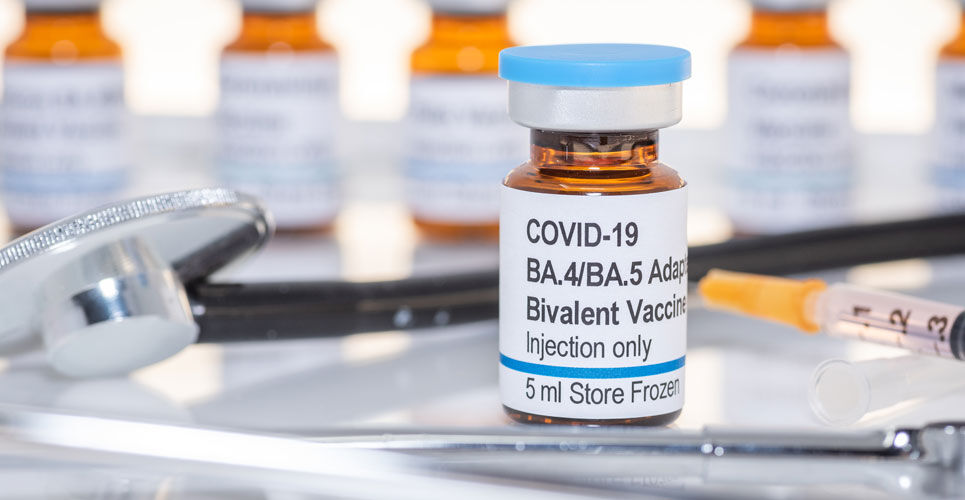The Omicron BA.4/BA.5-adapted-bivalent COVID-19 vaccine demonstrated a substantial increase in antibody response above pre-booster levels
The Omicron BA.4/BA.5-adapted bivalent COVID-19 vaccine showed a substantial increase in neutralising antibody response according to a press release by the joint manufacturers Pfizer and BioNTech. The findings come from a Phase 2/3 clinical trial evaluating the safety, tolerability, and immunogenicity of the companies’ bivalent vaccine.
Unfortunately, the release does not provide much numerical data, instead reporting that a 30-µg booster dose of the Omicron BA.4/BA.5-adapted bivalent vaccine demonstrated a substantial increase in the antibody response above pre-booster levels based on sera taken 7 days after administration. Furthermore, there were similar responses seen across individuals aged 18 to 55 years of age and those older than 55 years of age. In fact, when comparing the response among individuals older than 55 years of age who received either the bivalent vaccine, or the original vaccine, the booster dose of the original vaccine elicited more limited increase in the neutralising antibody response against the Omicron BA.4/BA.5 variants.
Taken together, the press release suggests that the results suggest that a 30-µg booster dose of the Omicron BA.4/BA.5-adapted bivalent vaccine is likely to provide better protection against the Omicron BA.4 and BA.5 variants than the original vaccine for both younger and older adults. Additionally, the Omicron BA.4 and BA.5-adapted bivalent vaccine was well tolerated with early data indicating a favourable safety profile, similar to that of the original vaccine.
In the study, sera were collected 7 days after the second booster dose from participants aged older than 55 (40 in each age group) and then compared to the 7-day post sera from 40 participants older than 55 years of age who had received three prior doses of the original BNT162b2 COVID-19 vaccine and a second booster with original vaccine. Sera were also collected 7 days post second booster dose from participants 18 to 55 years of age who received the Omicron BA.4/BA.5-adapted bivalent booster (n=40) to compare bivalent vaccine responses in younger and older adults. The time between third and fourth doses for the bivalent vaccine recipients was approximately 11 months compared to approximately 6 months for the original vaccine. Despite this difference, baseline neutralising antibody titers were generally similar across groups. Among the participants, samples were equally stratified at baseline in each group between those who either with or without a prior or current history of COVID-19.
The companies added that data measuring responses at one-month post-administration of the Omicron BA.4/BA.5 bivalent vaccine booster (rather than the currently reported 7 days) are expected in the coming weeks and will be used to support potential full licensure and global registration of the companies’ Omicron BA.4/BA.5-adapted bivalent COVID-19 vaccine.
It was also mentioned that the companies have initiated a similar Phase 1/2/3 trial investigating the Omicron BA.4/BA.5-adapted bivalent vaccine among children 6 months through 11 years of age.

